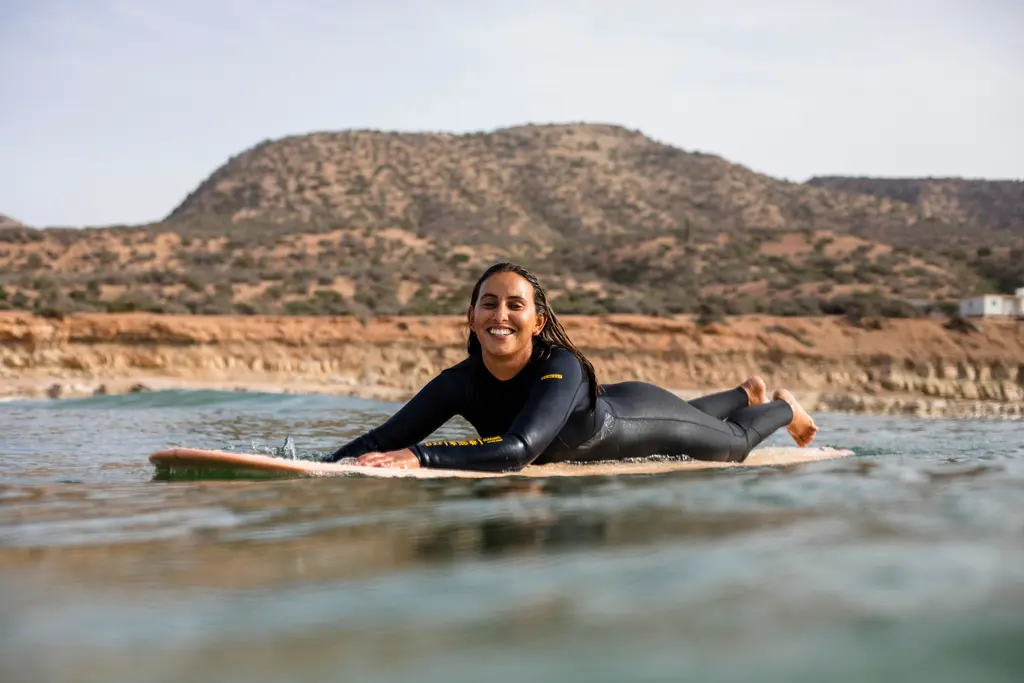The activist movement protecting Hawaii from a corporate takeover
- Text by HUCK HQ
- Photography by Cyrus Sutton

Cyrus Sutton is all about taking basic necessities into our own hands.
It could be building a van from scratch, living a surfer’s DIY dream or making films that epitomises independence.
His latest documentary Island Earth follows Hawaiian activists fighting off powerful agricultural companies in the name of self-sufficiency.
With the islands becoming a testbed for GMO research, Island Earth follows a young indigenous scientist’s search for truth in the face of an intimidating industry.
Island Earth has its UK Premiere at the London Surf / Film Festival on Tuesday 24 October at Huck’s 71a Gallery. Tickets are available here.
We caught up with Cyrus to find out why this is a story worth telling.
The film is quite a different direction from your previous features. What motivated you to tell this story?
Growing up among Southern California’s endless strip malls, trips to Hawaii symbolised what the world could be: lush, fragrant and vital. Beyond the beautiful surf was a culture that taught me a different definition of wealth, where clean water and verdant landscapes held everything that we needed to thrive.
A few years ago, I heard that this paradise was being poisoned by chemical companies testing their GMO crops. Perplexed by the lack of the media coverage and the misleading information, I decided to do something.

Native Hawaiian scientist Cliff Kapono.
How did you find the right characters to tell this story?
From spending time in Hawaii, I just met people who were active in the issue and got referrals from them and that lead me down a path of talking with local people and finding out who was actively involved in the issues covered in the film.
There are so many complex themes and issues here. How did you approach weaving them all together?
I would go and shoot and make edits and show it to friends who work in the documentary film worlds in LA and NYC, then get feedback from them and go reshoot. I also had a team of researchers helping me to understand the underlying issues of capitalism, colonialism, food security and agriculture. It was a collaborative effort and it took a lot of drafts – 67 in total.
What was the highlight of that whole process and what were the biggest challenges?
High Point: Participating at some of the cultural gatherings in Hawaii with local people who I’ve never had access to as a travelling surfer. Being invited into traditional Hawaii and getting to go around and hang out at farms and seeing people doing incredibly creative and practical forms of growing delicious food.
Low Point: Months and months of feeling like I couldn’t tie the narrative together. It’s really hard to tell a complex story of science, human health, and politics when I’m not a doctor, scientist or lawyer.

Is it difficult to allow viewers make up their own minds when producing a film on a topic you feel so passionate about?
I really tried to not take sides and genuinely keep my mind open. There were sometimes when I questioned my anger or my mistrust of the chemical companies. But I think I allowed myself to organically go through the process and look back after years of research and reflect on that. I hope the film carries that spirit of curiosity.
Island Earth has its UK Premiere at the London Surf / Film Festival on Tuesday 24 October at Huck’s 71a Gallery. Get your tickets here.
Enjoyed this article? Like Huck on Facebook or follow us on Twitter.
You might like

Green Day’s Billie Joe Armstrong tells ICE to “fuck off” in LA protest video
Saviors — The singer shared the post on Sunday, featuring the band’s recently released song ‘Fuck Off’ as its soundtrack.
Written by: Isaac Muk

Meet the Kumeyaay, the indigenous peoples split by the US-Mexico border wall
A growing divide — In northwestern Mexico and parts of Arizona and California, the communities have faced isolation and economic struggles as physical barriers have risen in their ancestral lands. Now, elders are fighting to preserve their language and culture.
Written by: Alicia Fàbregas

A new book explores Tupac’s revolutionary politics and activism
Words For My Comrades — Penned by Dean Van Nguyen, the cultural history encompasses interviews with those who knew the rapper well, while exploring his parents’ anti-capitalist influence.
Written by: Isaac Muk

On Alexander Skarsgård’s trousers, The Rehearsal, and the importance of weirdos
Freaks and Finances — In the May edition of our monthly culture newsletter, columnist Emma Garland reflects on the Swedish actor’s Cannes look, Nathan Fielder’s wild ambition, and Jafaican.
Written by: Emma Garland

A reading of the names of children killed in Gaza lasts over 18 hours
Choose Love — The vigil was held outside of the UK’s Houses of Parliament, with the likes of Steve Coogan, Chris O’Dowd, Nadhia Sawalha and Misan Harriman taking part.
Written by: Isaac Muk

Maryam El Gardoum is breaking new shores for Morocco’s indigenous surfers
The Amazigh Atlantic — Through her groundbreaking career and popular surf school, the five-time Moroccan champion is helping women find their places in the waves.
Written by: Sam Haddad

